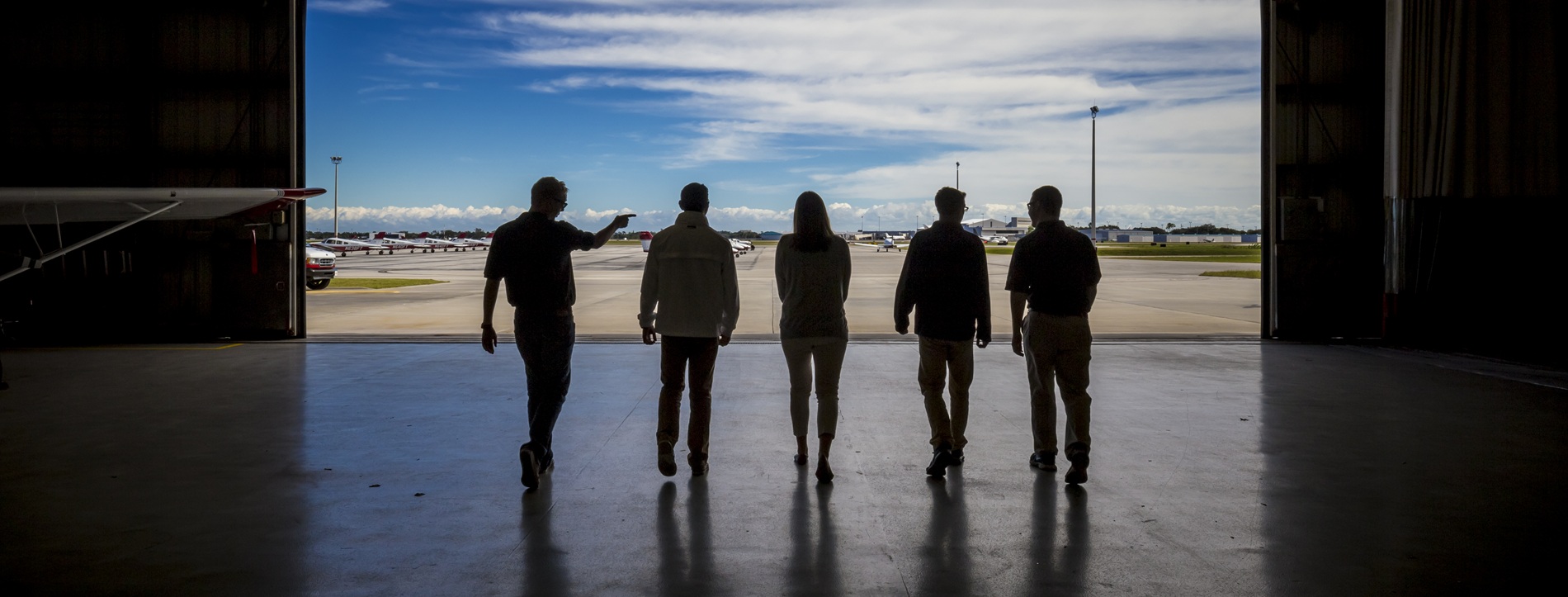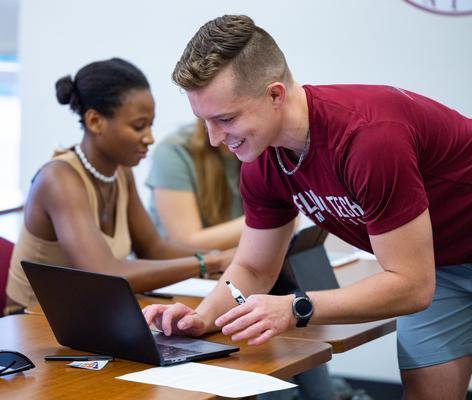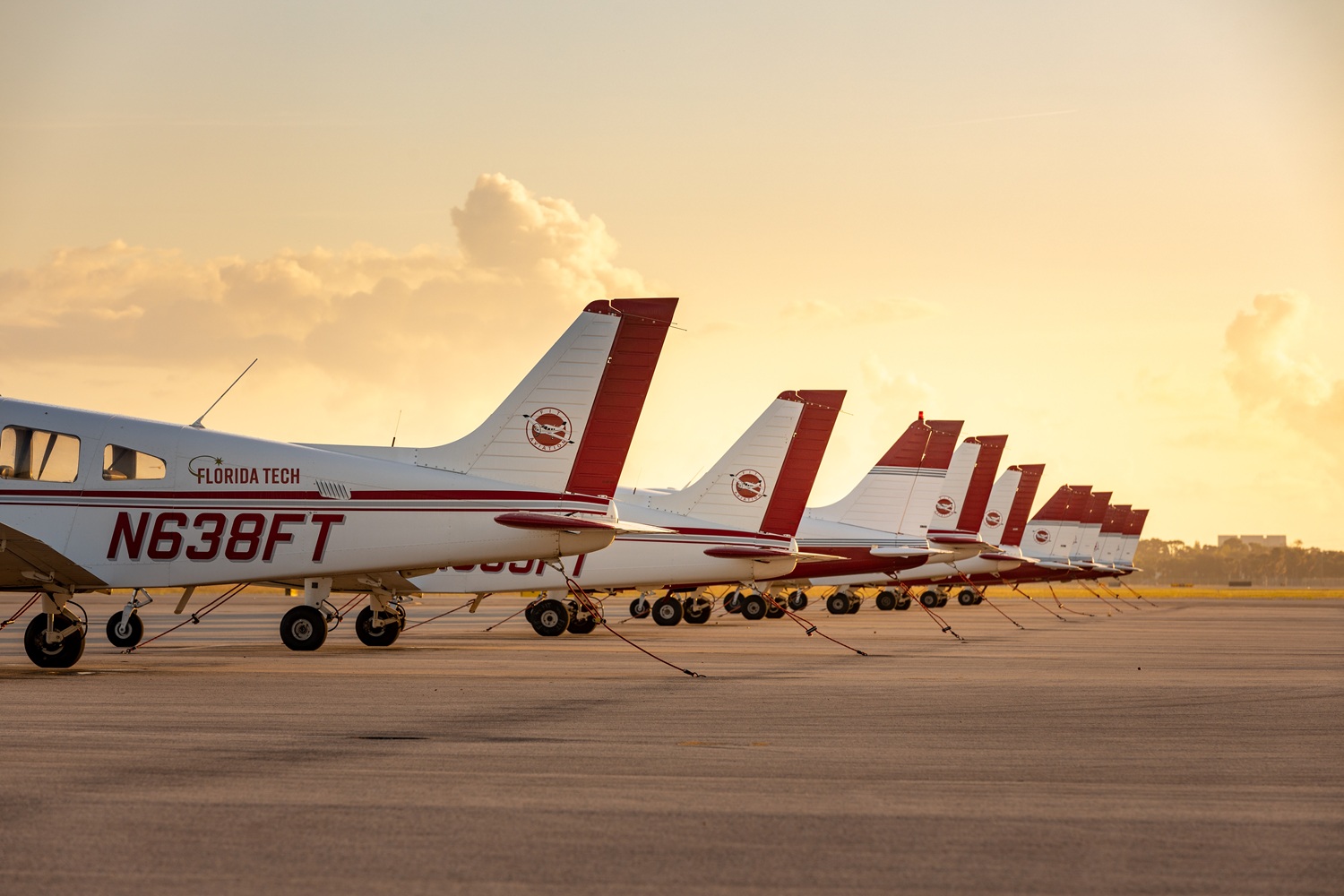At Florida Tech, aviation safety students gain real-world experience across our state-of-the-art facilities and fleet.
At the Emil Buehler Center for Aviation Training and Research, just 2.5 miles from campus, students access hangars, briefing rooms, lounges and our all-Piper fleet—including Warrior, Archer, Seminole and Pilot 100i aircraft with advanced glass-cockpit avionics.
Nearby, the Enterprise Building supports research, flight simulators and the Unmanned Aerial Systems (UAS) Lab, giving students opportunities to study safety, risk management and operational procedures.
On campus, Skurla Hall houses specialized labs where students practice in the Basic Aviation Training Device (BATD) Lab and in a realistic simulated air traffic control tower, applying safety protocols and problem-solving in real-world scenarios.
Together, these resources prepare students to lead in aviation safety with hands-on knowledge and expertise.

 Give to Florida Tech
Give to Florida Tech 


